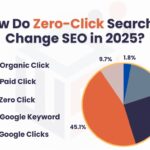Large Language Model SEO (LLM SEO)
Search is evolving faster than ever. In 2025, large language models (LLMs) like ChatGPT, Gemini, Perplexity, and Claude are changing how people find information online. Instead of browsing search results on Google, millions now ask these AI tools questions directly—and receive instant answers.
This shift has created a new digital marketing frontier: LLM SEO (Large Language Model SEO). For businesses, this is the next big opportunity to capture visibility, build trust, and stay ahead of competitors.
In this blog, we’ll explore what LLM SEO is, why it matters in 2025, how it compares to traditional SEO, and the key strategies you need to succeed.
What Is LLM SEO?
LLM SEO is the process of optimizing your content so that large language models (ChatGPT, Gemini, Perplexity, etc.) can easily understand, interpret, and surface it in their responses.
Unlike traditional SEO, which focuses on rankings and clicks in Google search results, LLM SEO is about being cited or mentioned inside AI-generated answers.
Key features of LLM SEO include:
- Writing in clear, conversational language.
- Structuring content with headings, FAQs, and lists for easy AI parsing.
- Building credibility with E-E-A-T (Experience, Expertise, Authoritativeness, Trustworthiness).
- Providing unique data, insights, and original research.
- Maintaining visibility across multiple formats (blogs, videos, podcasts, etc.).
Simply put, if SEO was about ranking high in search engines, LLM SEO is about being referenced by AI assistants.
Why Is LLM SEO Important in 2025?
The way people discover brands has fundamentally shifted:
- ChatGPT handles 2.5 billion+ prompts daily with 120 million active users.
- 27% of people in the U.S. prefer AI tools like ChatGPT or Gemini over traditional search engines.
- AI Overviews on Google are rerouting traffic, often answering queries directly instead of driving clicks.
If your content isn’t optimized for LLMs, you risk losing visibility—even if you rank well in Google.
The benefits of LLM SEO:
- New traffic source – Capture audiences directly from AI platforms.
- Authority building – Being cited in AI answers boosts brand trust.
- Future-proofing – As more searches happen in AI tools, your brand stays discoverable.
- Lower competition (for now) – Few businesses are actively focusing on LLM SEO, giving you a first-mover advantage.
LLM SEO vs. LLMO (Large Language Model Optimization)
It’s easy to confuse LLM SEO with LLMO. While they overlap, they serve different scopes:
- LLM SEO → Focuses on search-related contexts (Google AI Overviews, citations in ChatGPT answers, etc.).
- LLMO → Covers overall brand presence across any AI platform, including chatbots, voice assistants, and generative AI systems.
Think of LLM SEO as a subset of LLMO.
LLM SEO vs. Traditional SEO: Key Differences
While traditional SEO isn’t going away, LLM SEO requires a different mindset. Here’s a side-by-side comparison:
| Category |
Traditional SEO
|
LLM SEO |
| Core Focus |
Optimizing for rankings in Google or Bing search results pages | Optimizing for visibility and citations in AI-generated answers |
| Output Style |
Produces a ranked list of clickable website links | Delivers direct, conversational responses that may include citations |
| Signals of Value |
Keywords, backlinks, technical health, site authority | Clarity, semantic keywords, structured formatting, contextual relevance |
| Measurement of Success |
Keyword positions, organic traffic, click-through rates | Mentions, citations, and brand visibility inside LLM outputs |
| Content Requirements |
Evergreen content, backlink strategies, topical authority | FAQs, conversational answers, semantic phrasing, updated expertise |
| Shared Foundations |
Quality content, E-E-A-T, structured formatting, technical performance, freshness | Quality content, E-E-A-T, structured formatting, technical performance, freshness |
Key Strategies for LLM SEO in 2025
1. Write Conversational and Contextual Content
- Focus on natural language that reflects how users ask questions.
- Use semantic keywords and long-tail queries instead of just exact matches.
- Example: Instead of “best running shoes,” optimize for “What are the best running shoes for flat feet in 2025?”
2. Implement FAQs and Key Takeaways
- LLMs thrive on clear, structured answers.
- Add FAQ sections at the end of blogs.
- Use Key Takeaways boxes for scannable summaries.
- This helps both readers and AI systems extract snippets easily.
3. Use Structured Data and Schema
- Apply FAQ schema, How-To schema, and product markup.
- Structured data helps both Google and AI models parse and understand your content.
- Example: A product page with detailed schema is more likely to be surfaced in AI shopping answers.
4. Share Original Insights and Research
- Publish case studies, surveys, and unique data.
- AI models prioritize original content over generic information.
- Adding graphs, charts, and proprietary statistics increases citation chances.
5. Maintain Brand Authority and Consistency
- Build a strong presence across blogs, social media, forums, and video platforms.
- Consistency across channels reinforces your brand authority.
- More mentions = higher trust from AI models.
6. Optimize for Google’s AI Overviews
- Google is integrating AI Overviews (AIOs) in SERPs.
- To appear in AIOs:
- Write answer-first content.
- Use concise headings.
- Provide step-by-step breakdowns for complex queries.
7. Keep Content Fresh and Updated
- AI tools prioritize up-to-date information.
- Refresh older content with new data, examples, and updated best practices.
- Regular updates = long-term visibility.
8. Practice “Search Everywhere Optimization”
- LLMs pull content not only from websites but also from:
- Video transcripts (YouTube)
- Forums (Reddit, Quora)
- Social media posts
- Podcasts & PDFs
Expand your content strategy across these platforms to maximize visibility.
Measuring Success in LLM SEO
Traditional SEO relies on keyword rankings, clicks, and traffic. For LLM SEO, measurement is different:
- Mentions & Citations → How often your brand/content is cited in ChatGPT, Gemini, or Perplexity answers.
- AI Visibility Tools → Platforms like Profound and Semrush AI Tracking now measure visibility inside AI Overviews.
- Referral Traffic → Some AI platforms include clickable citations. Track traffic in GA4 analytics.
- Brand Mentions → Even without links, mentions increase brand authority.
- Engagement Metrics → Time on page, repeat visits, and social shares show if your content is valuable (and more likely to be surfaced by AI).
FAQs on LLM SEO
1. What is LLM SEO?
LLM SEO is the process of optimizing content so large language models like ChatGPT, Gemini, and Perplexity can understand and surface it in their responses.
2. Is LLM SEO replacing traditional SEO?
Not exactly. Traditional SEO still matters, but LLM SEO ensures your brand stays visible inside AI-driven answers where many users are shifting.
3. How do I measure LLM SEO results?
Track citations in AI platforms, referral traffic from AI tools, and AI visibility metrics from platforms like Semrush and Profound.
4. What type of content works best for LLM SEO?
Conversational, structured, and authoritative content—especially FAQs, original data, and answer-first content.
5. Why should businesses invest in LLM SEO now?
Because adoption of AI tools is exploding. Brands that optimize early gain long-term visibility, while late adopters risk losing ground.
Conclusion
The future of SEO is already here. With LLMs like ChatGPT, Gemini, and Perplexity shaping how users discover brands, businesses can no longer rely only on traditional SEO.
LLM SEO is about adapting your content for AI-driven discovery. By focusing on clarity, structured formatting, authority signals, and multi-platform presence, you ensure your brand continues to appear where audiences are searching—whether in Google or in AI answers.
The takeaway is simple: Traditional SEO gets you rankings. LLM SEO gets you citations. If you want to future-proof your visibility in 2025 and beyond, now is the time to embrace both.
Follow Us: Facebook, Twitter, LinkedIn, Instagram & YouTube.

Sandeep Kumar is the founder of Oshin Web Solution and a seasoned digital marketing expert with over 12 years of experience. He specializes in SEO, paid marketing, and online brand growth, helping businesses achieve measurable results in the digital space. When not strategizing campaigns, Sandeep enjoys exploring the latest marketing trends and sharing his insights with the community.






